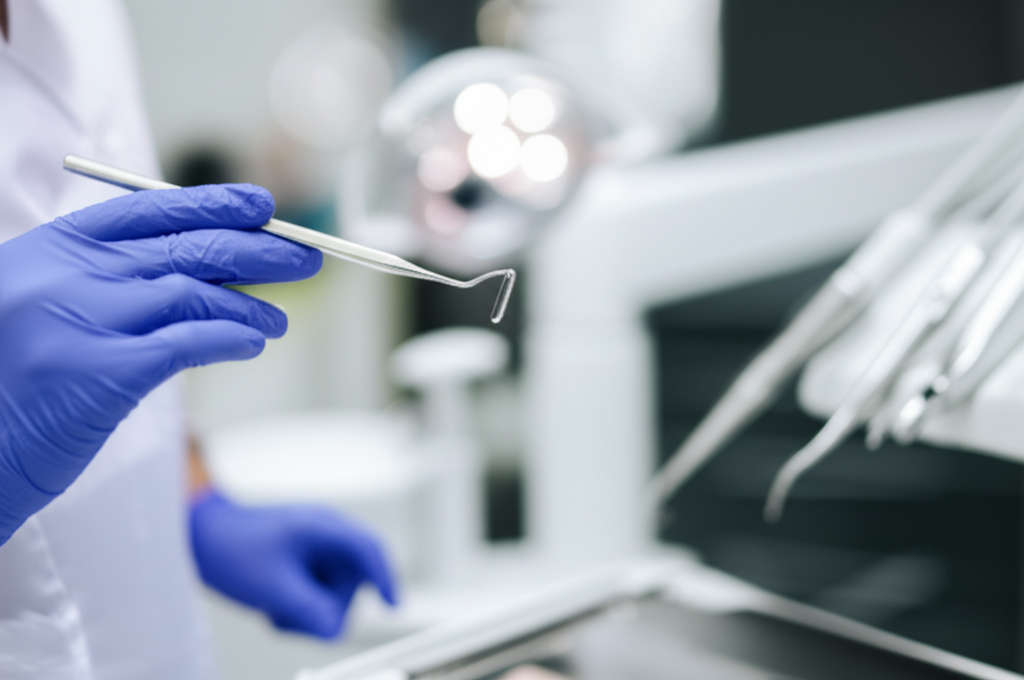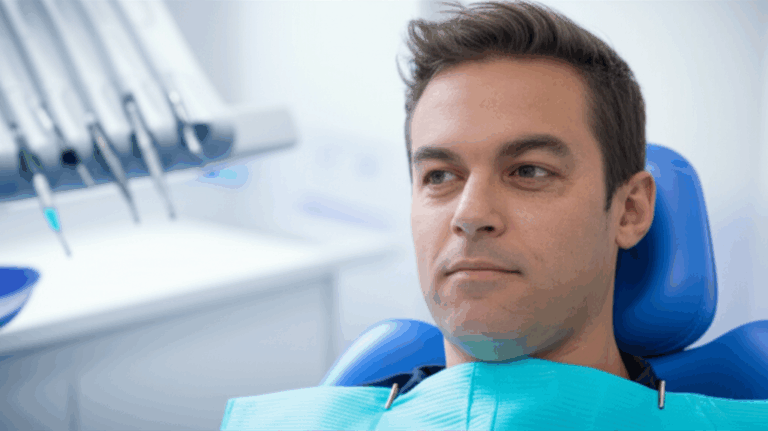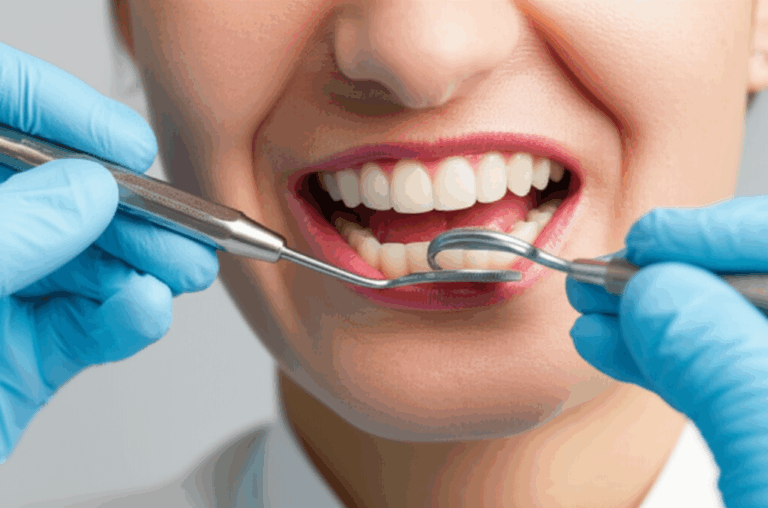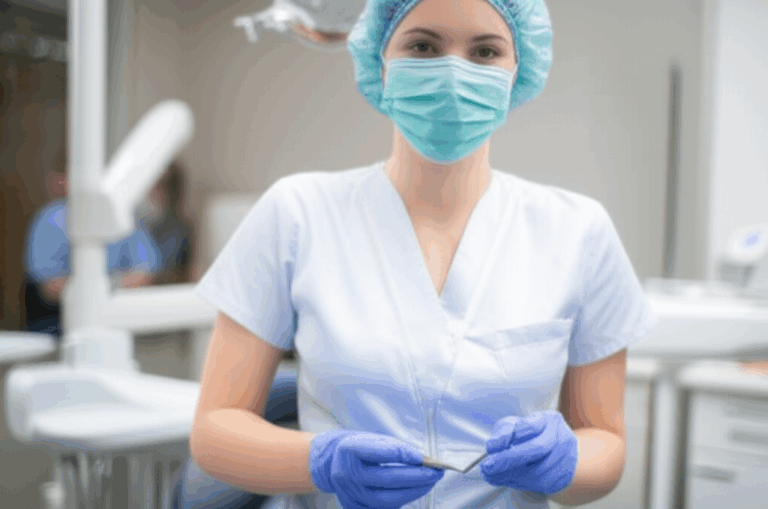
Are Dentists Required to Wear Masks? Understanding the Latest Guidelines and What They Mean for You
If you’ve sat in a dental chair lately and looked up at your dentist, you may have wondered, “Should they still be wearing a mask?”—you’re not the only one. Dental offices have changed a lot over the last few years. Mask rules have been all over the place: sometimes everyone is fully covered up, other times only when a drill is used. Now, it’s hard to know what’s needed, suggested, or just what people feel comfortable doing.
Let’s clear things up. You deserve to feel safe and sure when you visit your dentist. Here’s what’s going on with masks in dental offices, why it matters, and how you can speak up if you want to.
In This Article
- The Changing World of Dental Mask Requirements
- What the Official Guidelines Say Right Now
- When Will Your Dentist Wear a Mask?
- Types of Masks in Dentistry—and Why They Matter
- What If You Have Concerns as a Patient?
- How Has Mask Use in Dentistry Changed Over Time?
- Best Practices for the Future: Staying Safe in the Dental Office
- Your Key Takeaways and Next Steps
The Changing World of Dental Mask Requirements
Most people think dental offices are super clean: shiny tools, gloves, lots of wiping down. But masks have been less clear. Are dentists required to wear masks? The easiest answer is: “It depends.”
Why do mask rules matter so much? Mostly, you—and lots of other patients—want to make sure you don’t get sick with an infection, especially when someone’s working so close to your mouth. Then add in new rules from health experts, worries about things like COVID-19, and the fact that every office can have different rules. It’s no wonder people are confused.
What sets the rules for your dentist? There are a few main things: advice from the CDC, safety rules from OSHA, your State Dental Board’s rules, and what big dental groups like the American Dental Association (ADA) say. Plus, if your city is having more sick people, mask rules can get tighter or looser fast.
Let’s look at all this step by step.
What the Official Guidelines Say Right Now
Here’s the most important thing: Most dentists have to wear masks during some treatments—especially anything that makes a mist or spray, or that has them working right inside your mouth. For just looking at your teeth, the mask rules now usually change depending on if there are a lot of sick people in your area and what the office decides.
The Main Things Affecting Mask Use
CDC Advice:
The Centers for Disease Control and Prevention (CDC) says to think about the local risk. If lots of people around you are catching things like COVID-19 or the flu, everyone in healthcare—including dentists—should wear masks, no matter if they have shots or not. If there’s not much sickness in your area, masks are often just needed for people with coughs or when the work makes a spray.
OSHA Rules:
The Occupational Safety and Health Administration (OSHA) makes dental offices give staff protective gear, including masks, any time they might get blood, spit, or other stuff on them. This is not just a COVID thing—it’s for all healthcare jobs.
State Dental Boards and Health Departments:
Mask rules can change a lot from one state or city to another. In some places, like California, dental mask rules stayed strict even when national rules changed. Other places stopped the rules earlier and let each office choose.
Dental Groups:
Groups like the ADA still say wearing masks is a good idea for any higher-risk dental work. Their advice focuses on keeping patients and staff safe, even if official mask rules aren’t as strict.
So, Do Dentists Have to Always Wear Masks?
No, not all the time. But if you’re getting a cleaning, a filling, or anything with noisy tools, your dental team will almost always put on their masks. If you’re just talking at the front desk, mask rules may be more laid back, especially if illness isn’t spreading much nearby.
When Will Your Dentist Wear a Mask?
There’s not always one rule for every visit, but dentists are still supposed to (and often have to) wear masks for certain situations. Here’s when:
1. During Aerosol-Generating Procedures (AGPs)
These are things that make little drops fly into the air—like drilling, deep cleaning, or using the sprayer. Because these droplets can carry germs, wearing masks and other protective stuff is a must.
2. When Treating Higher-Risk Patients
If you or someone you care about has a weak immune system, is elderly, or has breathing problems, dentists will often be extra careful, maybe even use stronger masks like N95s.
3. If Any Staff Member Feels Sick
If anyone on the staff has a cough, fever, or sore throat and still comes to work, they have to wear a mask—to keep patients and other workers safe.
4. When Local Rules Require Masks
If your area is seeing lots of new sick people, health leaders can bring back mask rules for doctors and dentists in a hurry.
5. If the Practice Decides
Some dental offices just keep strict mask rules, no matter what the law says. If your dentist wants all staff to wear masks for any patient visits, that’s their choice—and many patients like feeling safer.
Types of Masks in Dentistry—and Why They Matter
Not every mask is the same, and dentists pick their gear based on what job they’re doing. Here’s what you’ll usually see:
Surgical Masks
- What they are: Paper-like masks you throw away after wearing. They cover the mouth and nose. They stop big drops and sprays—a dentist’s main pick for most regular work.
- When used: For checkups, cleanings, or smaller procedures.
N95 Masks (or Similar)
- What they are: These fit tight and block at least 95% of little floating germs.
- When used: For jobs making a lot of spray or if treating someone who might have something catching.
Face Shields and Goggles
- What they are: Clear plastic in front of the face or glasses that stop spit from getting in the eyes.
- Used with masks: Dentists and helpers often wear both during big or messy jobs.
Full Protective Gear
- Sometimes—like if lots of people in town are sick—dental workers might also wear gowns, head covers, and two pairs of gloves.
The point isn’t just to follow a rule. It’s all about keeping everyone as safe as possible—from the lab, like china dental lab, making your dental crown, to the clinic staff working with patients.
What If You Have Concerns as a Patient?
This is where your voice means a lot. Clean tools aren’t the whole story—asking questions and sharing feelings is a big part of safety too. If your dentist isn’t wearing a mask and you think they should, here’s what you can do.
Can You Ask Your Dentist to Wear a Mask?
Yes, you can. You have every right to ask your dentist or staff to wear a mask when they work on you. Maybe you have a weak immune system, just feel worried about getting sick, or think it’s safer—any good dental office should listen to your wish.
What If You Feel Uncomfortable?
If the dentist or assistant isn’t wearing a mask and it bothers you, just let them know. You could say, “Could you please wear a mask while you work on me? I would feel better.” Most dental offices respect this and won’t mind helping.
What If They Say No?
If your provider says they won’t wear a mask and doesn’t give a really good reason, you can always find a different office or even complain to your State Dental Board. Your comfort matters.
Why Should You Ask?
Mask wearing in healthcare makes people feel cared for and protected. Many people, especially since COVID, feel nervous when someone gets really close—so asking for extra safety is fine.
How Has Mask Use in Dentistry Changed Over Time?
Let’s see how dental mask use has changed over the years.
Before COVID: The Old Way
- Masks were used for stuff that could get spit or blood on the staff, or for anything making a spray.
- Sometimes, during a quick chat or check, dentists would take masks off.
- Rules were about “standard safety”—not really thinking about colds or the flu.
During COVID-19: Extra Care
- Masks everywhere: staff, patients, everyone wore masks all the time.
- More layers: Face shields, gowns, new air vents in offices to keep air clean.
- Big jobs needed N95 masks, and sometimes waiting a while between patients so the air could clear.
Now: Making Decisions Based on Risk
- Mask wearing now depends on how much sickness is in your town.
- Some offices keep stricter mask rules; others have let up a bit, at least for front desk staff or waiting rooms.
- Focus is on protecting those who might get really sick, and stopping germs from spreading.
What hasn’t changed:
Dental offices still have really high safety standards. Keeping germs away is still their top job, and good offices keep up with the latest advice.
Best Practices for the Future: Staying Safe in the Dental Office
So, what should you expect in your next dental visit—or later on?
Infection Control Won’t Go Away
If the last few years taught us anything, it’s that keeping things extra clean keeps everyone safe. Dental offices do more than ever now—better cleaning, more sterilization, and better air systems.
Using New Tools
Digital dental tools and new ways of making things (like a digital dental lab) help dentists care for you safely—sometimes even cutting down on the number of visits you need.
Mask Rules Will Keep Changing
Experts think mask rules will keep changing as needed. If there’s lots of flu or a new bug going around, rules will get stricter again. For now, it’s about using good info and talking things out.
Tips for Talking with Your Dentist
- Ask what the current mask rules are: The staff should be able to tell you what they do and why.
- Speak up about your worries: Tell your dentist if you have health problems or just feel better with a mask on.
- Know your rights: You can always ask for more protection if you want it.
Your Key Takeaways and Next Steps
Let’s wrap up the most important things to remember:
1. Mask rules in dental offices change a lot.
It depends on what you’re having done, how many people nearby are sick, what your state and dentist say.
2. Big procedures and at-risk patients mean stricter rules.
If the dental tools are on or someone is sick, masks (and maybe more gear) are required.
3. You come first.
You should ask for masks if you want to. It’s your right.
4. Dental offices work hard to keep everyone safe.
From wiping tools to picking protective gear, they focus on lowering the risks.
5. Ask questions and talk openly for the best care.
Don’t be shy. It’s okay to ask for what makes you feel safe.
Final Advice: How Can You Have a Safe and Comfortable Dental Visit?
- Before you go: Call ahead and ask about mask rules, especially if you or a loved one gets sick easily.
- At your visit: Don’t be afraid to ask for more protection or get things explained to you.
- If you feel sick: Wear your own mask, reschedule if you can, or ask how to keep everyone safe if you come in.
A healthy mouth means a healthier body. By knowing about mask rules—and knowing you have a say—you can stop worrying about the dentist and just focus on your health.
Still have questions about your next dentist visit, masks, or staying safe at the dentist?
Call your dental clinic, check trusted places like the ADA or CDC, and remember—being prepared helps a lot.
Your health. Your comfort. Your smile.
Let’s keep them all safe—together.
This article uses the latest info as of June 2024. For the newest guidance, check with your local health department, the American Dental Association, or the CDC.








